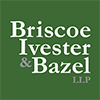 State Lands Commission to Make Itself Judge of Who Owns What Land
State Lands Commission to Make Itself Judge of Who Owns What Land
The State Lands Commission, charged with administering some of the tide and submerged lands owned by the State, is constructing its own administrative proceeding to decide who owns land the Commission claims is owned by the State. Boundaries of lands near water—or formerly near water, for that matter—are often difficult to ascertain. Ownership is equally often in legitimate dispute. Until now, the Commission would sue in an independent court to determine who actually owned the land it claimed. The proposed administrative proceeding, in which the Commission will be both prosecutor and judge, will have broad powers to extract fines of $1,000 per day or more from persons who do not readily acquiesce in the State’s land claims, and agree to give over their lands.
The proposal, which will be heard in the State Lands Commission’s office at 100 Howe Avenue, Sacramento, Monday afternoon June 8, is a sweeping one. The Lands Commission describes the proposal as benign, intended to favor property owners with a swifter way of acceding to State claims to the owners’ lands. The proposal in truth has the potential to disturb tens of thousands of land titles in the State.
Is your seawall, is your pier, is your house on State-owned land? Today, if the State claims it is, but you deny the claim, the State has a remedy: It may bring a trespass action in court against you. In court, the State has the burden of proof that it, and not you, owns the disputed property. That legal remedy has been how land disputes between a state and private landowners have been resolved since the beginning of the United States, which borrowed the common law of England for the purpose. It has been the remedy in California since California became a state, in 1850.
This legal remedy for the “sovereign,” it can safely be said, has withstood the test of time. It traces its roots to a meadow on the banks of the River Thames, almost precisely 800 years ago, when citizens fed up with the tyranny of the English Crown forced King John II to sign the Great Charter, Magna Carta. The 800th anniversary of the Magna Carta will occur precisely one week after the Lands Commission’s hearing this coming Monday. From the Magna Carta comes our principle that the State may deprive no person of life, liberty, or property, without due process of law. Quaint old expression it may be, but it is a bulwark of our society.
The court files of this State are replete with decisions holding that State claims to private property have been invalid. In recent years, State claims to the Santa Cruz Beach Boardwalk, to lands in Mission Bay in San Francisco, to Lake Merritt Plaza in Oakland, have all been proved invalid. The courts, slow and inefficient as they may be, have proved a necessary check against illegal land claims of state government. The proposed new “Court of State Lands” would change all that. It would allow the Lands Commission itself to determine whether its land claim was valid. As its administrative proceeding is designed, the order ruling against the landowner would be drafted before the landowner could offer any evidence at a hearing. The Lands Commission is hardly going to rule against itself, of course, and once having ruled in its own favor, it will have the landowner in a near-hopeless position: It will hammer down never-ending monetary penalties, and will seek to garnish wages or collect in any way imaginable.
And if the landowner dares to try to take the State to a real court, he or she will have no end of problems. The State will first assert that the landowner cannot take the matter to a real court until it has suffered the process of the Court of State Lands, its levying of fines and all of that. Then, after having endured the indignity of the Court of State Lands, if the landowner takes the matter to a real court, the State will argue that the court must presume the State’s decision in favor of itself is valid, and that the landowner—contrary to 800 years of legal precedent—now perversely has the burden of proof.
The hearing is Monday, June 8 at 1 p.m. Comments are due no later than Tuesday, June 9. The Lands Commission’s proposed rules creating its new court, and its explanation for them, may be found at http://www.slc.ca.gov/Regulations/Proposed.html.
John Briscoe
Briscoe Ivester & Bazel LLP
155 Sansome Street, 7th Floor
San Francisco, CA 94104
Telephone: (415) 402-2700
Fax: (415) 398-5630